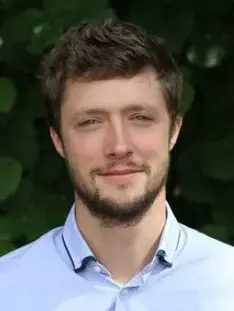Adrien Couet, an associate professor of nuclear engineering and engineering physics at the University of Wisconsin-Madison, is creating a platform to speed up development of materials for advanced fission and fusion reactors.
 Adrien Couet
Adrien Couet
The project has received $3 million in support from Schmidt Futures, a philanthropic initiative.
Developing new structural materials that can withstand the extreme environments in advanced nuclear fission and fusion reactors is a very time-consuming and costly process. “To deploy these nuclear energy technologies on a timeline conducive to reaching our climate goals for carbon-free energy, it’s critical to discover, develop and license new materials at an unprecedented pace,” Couet says. “This is our grand challenge.”
To tackle this challenge, Couet and his collaborators will create an integrated platform for accelerated nuclear materials development. The experimental platform will combine recent and novel developments in autonomous additive manufacturing, automated characterization, and testing in extreme environments, coupled to scientifically guided artificial intelligence.
“This project has the potential to advance the state of nuclear energy research and development quite dramatically,” Couet says. “Using high-throughput experiments—processing, testing and characterization—coupled to machine learning approaches is totally new in this field. And this will be the first high-throughput experimental platform for extreme environments applications.”
Lianyi Chen, the Charles Ringrose Associate Professor in mechanical engineering at UW-Madison, is co-principal investigator on the project. Chen will develop unique additive manufacturing equipment to create the alloys. Researchers at Washington University in St. Louis and Idaho National Laboratory are collaborating on the project.